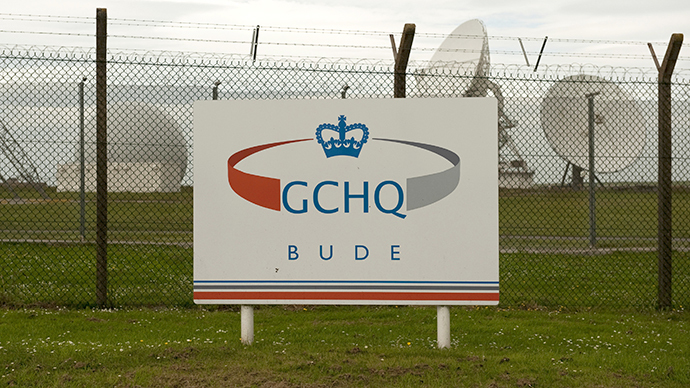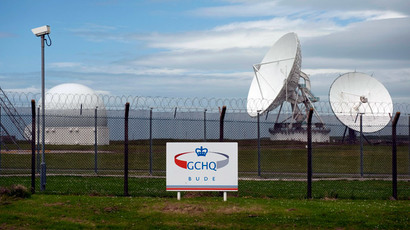Five Eyes spy pact: Transparency challenge lodged at European rights court

The cross-border ‘Five Eyes’ agreement that authorizes the sharing of intelligence between Britain, America, Australia, Canada and New Zealand should be made transparent, according to an appeal launched at the European Court of Human Rights.
The secret Five Eyes spy pact allegedly outlines UK security services’ collaboration with the National Security Agency (NSA) and other foreign intelligence agencies. In an effort to shed light on the agreement, Privacy International (PI) issued a legal challenge against the British government in the Strasbourg-based court. The application was filed by UK law firm Leigh Day & Co Solicitors.
The move is the most recent of a series of legal challenges stemming from revelations unveiled by American whistleblower and former NSA computer analyst Edward Snowden. The legal ploy, which came into effect on Tuesday, was orchestrated in the hope of forcing the UK government to publish details of its surveillance practices at home and abroad.
Renowned for its surveillance-related research and advocacy, PI warns the clandestine Five Eyes agreement has a profound impact on human rights in Britain and elsewhere. By failing to disclose the spy pact’s details, the UK government is violating the right of British citizens to access vital information that impinges directly on their rights, the group warns.
PI initially tendered freedom of information (FOI) requests in all Five Eyes states to obtain details of the spy pact, but US, UK, Canadian, Australian and New Zealand authorities refused to publish the agreement. In the case of Britain, GCHQ invoked an outright exemption that frees it from any obligation to conduct its activities in a transparent fashion.
Rosa Curling of Leigh Day emphasized GCHQ’s blanket exemption from FOI requests breaches Article 10 of the European Convention on Human Rights, which deals with the right to freedom of expression and the right to receive information.
“It cannot be correct that all information, without exception, directly or indirectly supplied by GCHQ is exempt from public disclosure,” Curling said. “With the credibility and public confidence in the activities of the UK's secret service at an all-time low, it is crucial that the European Court considers whether the current darkness in which GCHQ operates is allowed to continue."

Having exhausted all domestic legal avenues to gleaning information relating to the intelligence-sharing pact, PI resolved to file an appeal at the European Court of Human Rights. Being Europe’s “highest human rights court,” the group emphasizes that it’s a fitting venue for such a transparency case, particularly given it has a “strong history of ensuring intelligence agencies are compliant with human rights law.”
Although PI’s legal challenge against the British government has officially been processed, a spokesperson for the group told RT on Tuesday it could be months before the court makes a decision on whether it will hear the case.
PI’s efforts to render the Five Eyes agreement transparent, follow recent revelations that the NSA along with several foreign intelligence partners deploy a specially tailored Google-like search engine to delve into global citizens’ private data. The in-house surveillance tool was built to share over 850 billion private records pertaining to telephone calls, emails, mobile phone locations and online chats, classified US documents obtained by the Intercept reveal.
The Five Eyes group of states routinely share global citizens’ private data which has been harnessed by mass surveillance operations, according to Edward Snowden. But critical information relating to this opaque interstate arrangement remains obscured from public knowledge and scrutiny.
As a result, citizens’ are unaware of the circumstances under which individuals are spied upon; which specific governments are party to private internet and telecommunications data gleaned by these intelligence agencies; and what, if any, protective measures exist to ensure citizens’ private data is not misused.
In a bid for transparency to protect citizens’ privacy rights, PI has requested the European Court of Human Rights rule that details relating to this spy pact be made public.
The civil liberties group argues the strongly integrated nature of “intelligence services of the world’s major English-speaking countries” has never been more apparent, following a recent disclosure that Britain’s Government Communication Headquarters (GCHQ) is deeply involved in ICREACH - a surveillance sharing program spear-headed by the NSA.
Following the launch of the legal challenge, Eric King, deputy director of PI, cautions that “more than a year after Snowden, the British government continues to dodge the question of just how integrated the operations of GCHQ and NSA truly are.”
Reflecting on the covert nature of the Five Eyes arrangement, he said “the hushing up of the extent of the alliance is shameful.”
“The public deserve to know the dirty deals going on between the Five Eyes, who trade and exploit our private information through this illicit pact. For trust to be restored, transparency around these secret arrangements is a crucial first step.”














